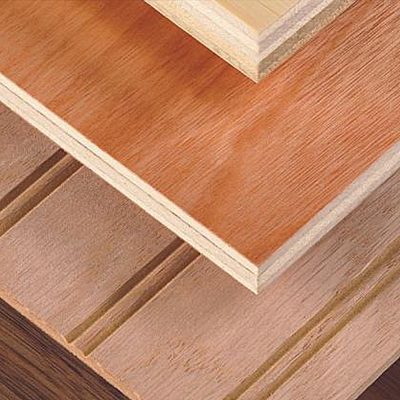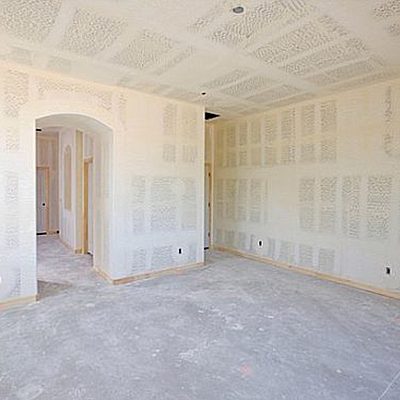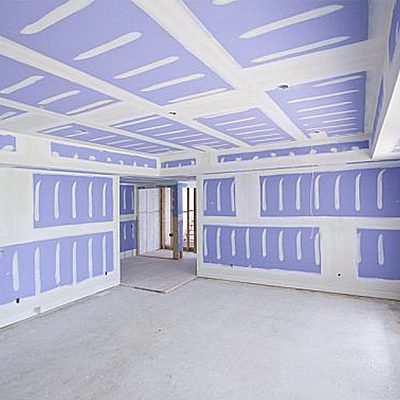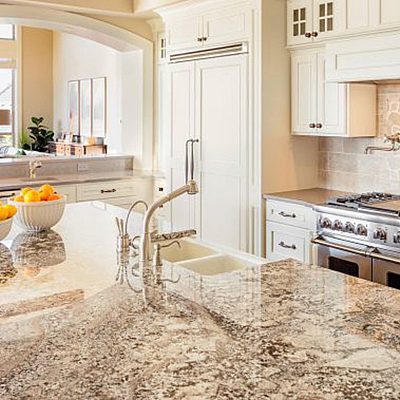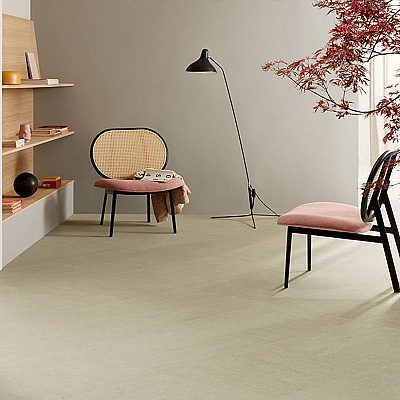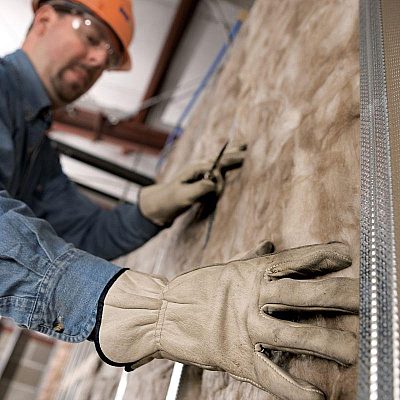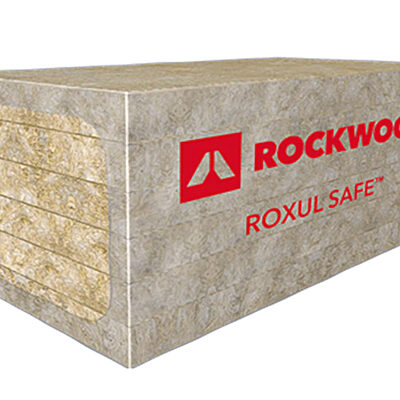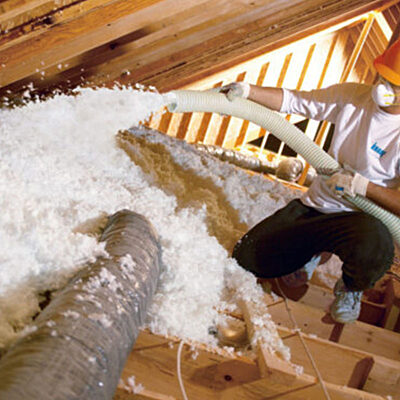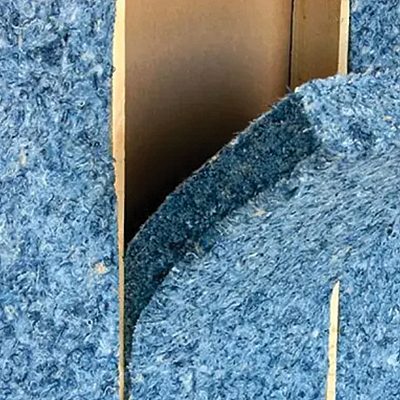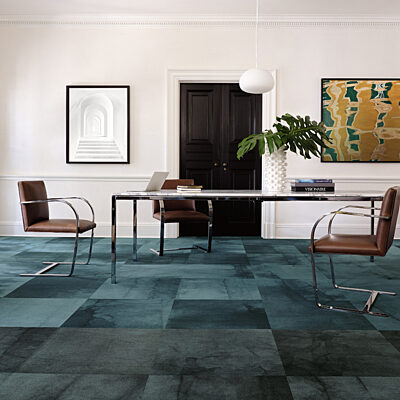The Rose is a mixed-income housing project in Minneapolis developed by Aeon and Hope Community. Investigating this project offers an introduction to understanding the processes and challenges of designing and building affordable, sustainable housing. It is particularly interesting to explore such a development and connect with key stakeholders of the project as all parties have demonstrated an intention to prove that sustainable, net-zero-ready, healthier housing development can be built affordably. Such a common motivation between stakeholders in the housing development industry is timely and offers a momentum to work together towards tools, mechanisms, and propositions to make the process more transparent, practical, affordable, and replicable, and thus, more easily accessible to other housing developers. The transparency and commitment to share information on promising practices from the developers, architects, contractor and consultants demonstrates a real desire to work together for positive change, moving beyond competition towards collaboration in the affordable housing sector. Our hope is that this report is a resource for the organizations involved in the building of The Rose and an aid to widely disseminate and replicate better building practices.
Dissecting the challenges of specific moments, key decisions, and negotiations brings to light the road to innovation for the creation of more sustainable, healthier buildings. The network of complex relations, partnerships and decision-making processes existing between National and State policy, Developer, Architect, Contractor, Manufacturer and local communities is an important characteristic of the project.
Examining The Rose as a pilot project also enables an understanding of the current benchmarks for sustainable and affordable developments. In understanding the guidelines of the two certifications the development subscribed to, the Living Building Challenge (LBC) and Enterprise Green Communities Certification (EGCC) allows for a critical analysis of the implementability and replicability of their requirements in relation to human health and affordability.
This case study uses a particular lens on the specification and procurement process of the interior building products of the development in order to uncover the relationship between affordability and the challenges of purchasing less toxic construction products. This research was carried out from May to November 2015, and includes excerpts from interviews carried out with numerous stakeholders who participated in this development. MSR Design and their documentation of the process and Aeon’s expertise in affordable housing development were key resources to this research. The Rose opened in October 2015 and a post-occupancy survey and analysis has been set up to be completed and ongoing in the coming years.
The Rose
11 products
About Our Collections
The goal of our collections is to help promote transparency in the material ingredients of building products by fostering knowledge and awareness of products and materials for which life-cycle information is available, and that have environmentally, economically, and socially preferable life-cycle impacts.
Keep an eye out for the following symbols:
A Healthier Affordable Building Product
Products with the designation of "Healthier & Affordable" were specified and installed in at least one of our Case Studies of healthier affordable housing.
Available at the Donghia healthier Materials Library
The Donghia healthier Materials Library library is open to Parsons student and faculty. Learn more about access and opening hours here.
Low Embodied Carbon
“Embodied Carbon” is the total amount of carbon emitted during the process of making a material. *HML refers to a manufacturer's EPD to determine whether a product's A1-A3 carbon emissions falls within HML's threshold for Low Embodied Carbon.
New Product
This product has been added to the collection within the past six months.
Product in Development
Products with this designation identify they are currently scaling or only available in markets outside of the building industry. they could be experimental or in use in capsule collections.
Available in the EU
Products with this designation are currently available only in the European Union and identified as being an exemplary healthy option in the respective product group.
Ingredient Disclosures
There are several ways of evaluating a material’s health that we include with product information. Disclosures are reports by manufacturers about product ingredients, impacts, or other attributes.
Key Disclosures include:
Health Product Declaration (HPD)
A voluntary technical specification for reporting information on product contents and associated health information, intended to be the health-analogue to Environmental Product Declarations (EPDs).
Declare Label
Declare is a transparency platform and product database that answers three questions:
1. Where does a product come from?
2. What is it made of?
3. Where does it go at the end of its life?
Environmental Product Declaration (EPD)
A standardized format for communicating the environmental effects associated with a product’s raw materials extraction, energy use, chemical makeup, waste generation, and emissions to air, soil, and water.
Safety Data Sheet (SDS)
A reporting format that provides basic information about a material’s chemical ingredients, the potential safety hazards to installers, and recommended practices for installation.
USDA Certified Biobased Product Label
Managed by the U.S. Department of Agriculture (USDA), the goal of the BioPreferred Program is to increase the purchase and use of biobased products.
Other
| Category | Sub-category | Manufacturer | Product | Ingredient Disclosures | |
|---|---|---|---|---|---|
| Dimensional Surface | Plywood | Columbia Forest Products | PureBond Hardwood Plywood | HPD Declare EPD SDS |
Columbia Forest Product's PureBond hardwood plywood is formaldehyde-free, and is instead made with a soy-based binder. This North American-made product is also cost-competitive with standard plywood products, making it a fantastic healthier alternative. It contains 95% Biobased Content and has been awarded the USDA Certified Biobased Product Label in the BioPreferred® Program. Used in Healthier Affordable HousingIn Donghia Materials Library
Last UpdatedDecember 16, 2025 Categories
Dimensional Surface,
Plywood
Material composition*Wood Dust 95.65%, Other components below the reportable levels, (the specific chemical identity and/or percentage of composition has been held withheld as a trade secret) <1% *as reported by the manufacturer
Available Sizing2’x 4’, 2’x 8’, 4’x 8’, 4’x 10’ Panels - available in standard thickness COLORSVariety of wood species ManufacturerColumbia Forest Products
Additional DocumentsCertifications & Disclosures
Health Product Declaration (HPD)
Declare Label
Environmental Product Declaration (EPD)
Safety Data Sheet (SDS)
USDA Certified Biobased Product Label
Other
FSC Certification
Rainforest Alliance Certification
Contributes to LEED credits
USDA Certified Biobased Product Label
Additional Documents |
| Dimensional Surface | Plywood | Columbia Forest Products | PureBond Classic Core® Plywood | HPD Declare EPD SDS |
Classic Core® is a combination core panel construction where cross bands of thin MDF are utilized in place of veneer cross bands. Classic Core® can be manufactured with bonded crossbands which do not contain added formaldehyde. PureBond Classic Core® may contribute to LEED® 2009 credit IEQ 4.4 and conforms to CARB II exempt emission requirements called for in LEED V4. It contains 95% Biobased Content and has been awarded the USDA Certified Biobased Product Label in the BioPreferred® Program. Used in Healthier Affordable HousingIn Donghia Materials Library
Last UpdatedJanuary 13, 2026 Categories
Dimensional Surface,
Plywood
Material composition*Veneer: Wood; Decorative veneer: Wood; adhesive: Polyvinyl Acetate; Water; Defatted Soy Flour; Magnesium oxide (MgO); Hexanedioic acid, polymer with N-(2-aminoethyl)-1,2-ethanediamine and (chloromethyl)oxirane; Monopotassium Phosphate; Glycerin; Corn Starch; Borax; Calcium hydroxide (Ca(OH)2) *as reported by the manufacturer
Available Sizing4’x 8’, 4’x 10’ Panels - 1/2”, 5/8”, 3/4”, 1” and 1-1/4” thickness COLORSVariety of wood species ManufacturerColumbia Forest Products
Additional DocumentsCertifications & Disclosures
Health Product Declaration (HPD)
Declare Label
Environmental Product Declaration (EPD)
Safety Data Sheet (SDS)
USDA Certified Biobased Product Label
Other
FSC Certification
Rainforest Alliance Certification
Contributes to LEED credits
USDA Certified Biobased Product Label
Additional Documents |
| Drywall | Gypsum | National Gypsum Company | Gold Bond Gypsum Board | HPD Declare EPD SDS |
Gold Bond’s Gypsum Board panels are a lightweight and cost-effective wall material. Their gypsum core (which is naturally fire resistant) is encased in 100% recycled paper on the face and back sides. This product is also Greenguard Gold Certified, meaning it meets strict standards for VOC and Formaldehyde emissions. Used in Healthier Affordable HousingIn Donghia Materials Library
Last UpdatedDecember 16, 2025 Categories
Drywall,
Gypsum
Material composition*Calcium Sulfate Dihydrate (Gypsum) 85-95%, Cellulose (Paper Fiber) 5-15%, may contain Mixture-Calcium, Aluminum Silicates, Amorphous Silica <1% *as reported by the manufacturer
Available Sizing4’ x 6’ up to 16’ - available in 1/4”, 3/8” and 1/2” thickness COLORSWhite and gray paper face ManufacturerNational Gypsum Company
Additional DocumentsCertifications & Disclosures
Health Product Declaration (HPD)
Declare Label
Environmental Product Declaration (EPD)
Safety Data Sheet (SDS)
USDA Certified Biobased Product Label
Other
GREENGUARD | Gold
Contributes to LEED credits
Additional Documents |
| Drywall | Gypsum | National Gypsum Company | Gold Bond XP Gypsum Board | HPD Declare EPD SDS |
Gold Bond XP Gypsum Board is the National Gypsum Company’s moisture and mold resistant product. Sporgard™ is added to the gypsum core, which is encased in 100% recycled, mold and mildew resistant paper on either side. This product is also Greenguard Gold Certified, meaning it meets strict standards for VOC and formaldehyde emissions. Used in Healthier Affordable HousingIn Donghia Materials Library
Last UpdatedDecember 16, 2025 Categories
Drywall,
Gypsum
Material composition*Calcium Sulfate Dihydrate (Gypsum) >85%, Cellulose (Paper Fiber) <10% *as reported by the manufacturer
Available Sizing4’ x 6’ up to 16’ - available in 1/4”, 3/8” and 1/2” thickness COLORSWhite and purple paper face ManufacturerNational Gypsum Company
Certifications & Disclosures
Health Product Declaration (HPD)
Declare Label
Environmental Product Declaration (EPD)
Safety Data Sheet (SDS)
USDA Certified Biobased Product Label
Other
GREENGUARD | Gold
|
| Dimensional Surface | Solid Stone | Coldspring | Granite Countertop | HPD Declare EPD SDS |
Coldspring Granite Countertops are made from 100% natural granite. Stone is one of the most durable materials that you can use for any application - when specified and detailed correctly, these countertops can last for hundreds of years. Their long life results in granite countertops’ very low embodied energy levels. Coldspring is also committed to sustainable manufacturing practices that maximize the utilization of resources while minimizing energy use. Used in Healthier Affordable HousingIn Donghia Materials Library
Last UpdatedDecember 16, 2025 Categories
Dimensional Surface,
Solid Stone
Material composition*Granite 100% *as reported by the manufacturer
Available SizingCustom Sizes - available in 3/4” thickness COLORSAvailable in a variety of granite types ManufacturerColdspring
Additional DocumentsCertifications & Disclosures
Health Product Declaration (HPD)
Declare Label
Environmental Product Declaration (EPD)
Safety Data Sheet (SDS)
USDA Certified Biobased Product Label
Other
Declare | Red List Free
NSF/ANSI 51 Certification
Contributes to LEED credits
Additional Documents |
| Resilient | Linoleum | Forbo Flooring Systems | Marmoleum Modular | HPD Declare EPD SDS |
Marmoleum Modular tiles are made from natural materials. The product has a low carbon footprint, and is free from toxic materials such as phthalates. The modular tiles allow you to mix and match to design a unique floor surface. Per Forbo's product-specific EPDs, these Marmoleum flooring system meets HML's criteria for low embodied carbon. It contains 100% Biobased Content and has been awarded the USDA Certified Biobased Product Label in the BioPreferred® Program. Used in Healthier Affordable HousingIn Donghia Materials Library
Low-Embodied Carbon
Last UpdatedDecember 16, 2025 Categories
Resilient,
Linoleum
Material composition*Wood Flour 25-50%, Linseed Oil 24-45%, Reused Marmoleum 20-24%, Calcium Carbonate 13-23%, Gum Rosin 4-6%, PET backing 4%, Titanium Dioxide 2%, Pigments: 0-3% (Bayferrox red 130, Black PJ3013, Blue PS 5.1-87, Carbon Black pearls 120, Cromophtal Red K 3830 C20, IOX Yellow 02, Irgalite red K 4170 FP C20, Magnesium oxide (MgO), OMNICOLOR-orange DW23132006-PN, Red 147008-C20, Sicoplast V Blue 68-8110, Yellow 132026, Yellow PS 2.1-26, Zinc oxide), Finish 0-1% (Polyester Acrylate, Urethane Acrylate) *as reported by the manufacturer
Available Sizing9.8”x 9.8”, 9.8”x 19.69” and 19.69”x 19.69” Tiles COLORSAvailable in a variety of colors ManufacturerForbo Flooring Systems
Additional DocumentsCertifications & Disclosures
Health Product Declaration (HPD)
Declare Label
Environmental Product Declaration (EPD)
Safety Data Sheet (SDS)
USDA Certified Biobased Product Label
Other
Declare | Red List Free
Contributes to LEED credits
USDA Certified Biobased Product Label
Additional Documents |
| Insulation / Fibrous, Cellulosic, Granular | Fiberglass | Knauf Insulation | EcoBatt | HPD Declare EPD SDS |
EcoBatt Insulation is free of formaldehyde, acrylics, and artificial colors. This insulation combines post-consumer recycled bottle glass and Knauf’s ECOSE Technology. It can be used for walls, ceilings, sound control, floors, attics, and mid-floor applications. This product is Declare Red List Free. It has also achieved a Greenguard Gold Certification, which ensures that it meets strict standards for VOC emissions. Per EPD, this product meets HML's criteria for low embodied carbon - thanks in large part to its use of recycled materials. Knauf currently has 27 productions across the US, Europe, and the Middle East. When specifying this product be sure to consider the distance it will travel to your site. Ecobatt's R-value range is declared between 8-49. Low-Embodied Carbon
Last UpdatedDecember 16, 2025 Categories
Insulation / Fibrous, Cellulosic, Granular,
Fiberglass
Material composition*Glass oxide <100%,Syrups, hydrolyzed starch <10%, Ammonium Sulfate 1-5%, Mineral Oil 1-5%, Silane <1% *as reported by the manufacturer
Available SizingAvailable in a variety of sizes and thicknesses for wood and metal framing COLORSTaupe ManufacturerKnauf Insulation
Additional DocumentsCertifications & Disclosures
Health Product Declaration (HPD)
Declare Label
Environmental Product Declaration (EPD)
Safety Data Sheet (SDS)
USDA Certified Biobased Product Label
Other
GREENGUARD | Gold
Declare | Red List Free
Contributes to LEED credits
Additional Documents |
| Insulation / Fibrous, Cellulosic, Granular | Mineral Fiber | Roxul | Safe | HPD Declare EPD SDS |
Safe is batt insulation made from mineral wool that provides acoustic dampening and is non-combustible. Safe N Sound is similar to Rockwool's Safe product but is primarily for interior applications. It is Greenguard Gold Certified, meaning it meets strict requirements for VOC and formaldehyde emissions. This product meets HML's low embodied carbon standards per Rockwool's EPD for its stone wool insulation. Production facilities are located in the US and Canada. For shorter transportation, the North American Market is therefore preferable. Rockwool's Ontario location uses a substantial amount of recycled material. *NOTE: This product contains phenol-formaldehyde. According to the manufacturer: "Phenol formaldehyde is allowed in rigid mineral wool insulation for exterior applications (such as rain screen assemblies or foundation insulation). While rigid mineral wool insulation does contain some formaldehyde, most of the formaldehyde is eliminated in the production process through a chemical reaction and high heat. Rigid mineral wool insulation installed on the exterior of the building possess less risk to humans and ecosystem than rigid foam insulation products, which almost always contain HFRs and use blowing agents with high global warming potential." Roxul's R-value range is declared at 4.2/inch. Used in Healthier Affordable HousingIn Donghia Materials Library
Low-Embodied Carbon
Last UpdatedFebruary 25, 2026 Categories
Insulation / Fibrous, Cellulosic, Granular,
Mineral Fiber
Material composition*Stone Wool Biosoluble 95-100%, Syrups Hydrolyzed Starch 1-2%, Phenolic Formaldehyde Binder 0-1%, Urea Binder 0-1% *as reported by the manufacturer
Available SizingAvailable in a variety of sizes and thicknesses for wood and metal framing COLORSTaupe ManufacturerRoxul
Additional DocumentsCertifications & Disclosures
Health Product Declaration (HPD)
Declare Label
Environmental Product Declaration (EPD)
Safety Data Sheet (SDS)
USDA Certified Biobased Product Label
Other
GREENGUARD | Gold
Contributes to LEED credits
Additional Documents |
| Insulation / Fibrous, Cellulosic, Granular | Fiberglass | Knauf Insulation | Jet Stream Ultra | HPD Declare EPD SDS |
Knauf Insulation Jet Stream ULTRA is an unbonded, fibrous glass blowing insulation that is designed to be used in attics or with the BIBS system (Blown-in-Blanket System). This product is Declare Red List Free, and meets the strict VOC emission standards for the Greenguard Gold Certification. Additionally, it is made with over 60% post-consumer recycled glass (cullet) content. Per Knauf's product-specific EPD, Jet Stream Ultra meets HML's criteria for low embodied carbon. Knauf currently has 27 production across the US, Europe, and the Middle East. When specifying this product be sure to consider the distance it will travel to your site. Jet Stream's R-value range is declared between 11-60 per inch. Used in Healthier Affordable HousingIn Donghia Materials Library
Low-Embodied Carbon
Last UpdatedJanuary 13, 2026 Categories
Insulation / Fibrous, Cellulosic, Granular,
Fiberglass
Material composition*Post Consumer Cullet 59.3%, Sand 17.3%, Borax 9.2%, Soda Ash 5.1%, Quicklime 3.7%, in-house cullet 2.5% *as reported by the manufacturer
Available Sizing32 lb Package COLORSWhite ManufacturerKnauf Insulation
Additional DocumentsCertifications & Disclosures
Health Product Declaration (HPD)
Declare Label
Environmental Product Declaration (EPD)
Safety Data Sheet (SDS)
USDA Certified Biobased Product Label
Other
Declare | Red List Free
GREENGUARD | Gold
Contributes to LEED credits
Additional Documents |
| Insulation / Fibrous, Cellulosic, Granular | Denim | Bonded Logic | UltraTouch | HPD Declare EPD SDS |
UltraTouch Denim Insulation is an alternative to traditional fiberglass batt insulation that is free of VOCs and other chemical irritants. This product contains 80% post-consumer recycled denim, and provides excellent sound absorption and thermal insulation. Denim Insulation's R-value range is declared between 8-30. Last UpdatedDecember 16, 2025 Categories
Insulation / Fibrous, Cellulosic, Granular,
Denim
Material composition*Recycled Fiber 80%, Binder Fiber, Ammonium Sulfate, Boric Acid (undisclosed %) *as reported by the manufacturer
Available SizingAvailable in a variety of sizes and thicknesses for wood and metal framing COLORSBlue ManufacturerBonded Logic
Additional DocumentsCertifications & Disclosures
Health Product Declaration (HPD)
Declare Label
Environmental Product Declaration (EPD)
Safety Data Sheet (SDS)
USDA Certified Biobased Product Label
Other
Contributes to LEED credits
Additional Documents |
| Tufted Broadloom Carpet | Synthetic | Shaw Contract | Ecoworx Carpet Tile | HPD Declare EPD SDS |
Shaw's EcoWorx carpet tile is a non-PVC backed carpet tile. Per manufacturer, all EcoWorx carpet tile with nylon are Cradle to Cradle Certified® Silver. The HPD relates to several EcoWorx products, including Truism, Adage and Belief Ecoworx tiles. They meet the Green Label Plus certification for low VOCS and contribute to LEED credits. EcoWorx contains 25% pre-consumer recycled content. Shaw guarantees free reclamation and recycling at the end of use. In Donghia Materials Library
Last UpdatedJanuary 13, 2026 Categories
Tufted Broadloom Carpet,
Synthetic
Material composition*Calcium Carbonate 22-58%, Ethene-1-Octene Copolymer 5-15%, Aluminum Trihydrate (ATH) 3-8%, Hydrocarbons C6-20 2-5%, Polyethylene Terephthalate (PET) 2-5%, Vinyl Acetate/Ethylene Copolymer 2-5%, Fiberglass 1-3%, Quartz 0.5-5%, Ethylene/Hexane-1Copolymer .1-2%, Nylon 6 Polymer 0-51%, Nylon 6.6 0-50%, Modified Acrylic Binder 0-1%, Polyvinyl Alcohol 0-1%, Resin Acids/Rosin Acids, Esters with Triethylene Glycol 0-1%, Tridecyl Alcohol Ethoxylate 0-1%, Undisclosed 0-1% *as reported by the manufacturer
Available Sizing18 x 36in ManufacturerShaw Contract
Certifications & Disclosures
Health Product Declaration (HPD)
Declare Label
Environmental Product Declaration (EPD)
Safety Data Sheet (SDS)
USDA Certified Biobased Product Label
Other
Cradle to Cradle | Silver
Cradle to Cradle Material Health | Silver
CRI Green Label Plus
SCS | Indoor Advantage Gold
|
Join Our Academic Network
Get Access to our carefully researched and curated academic resources, including model syllabi and webinars. An email from an academic institution or a .edu email address is required. If your academic institution does not use .edu email addresses but you would like to join the network, please contact healthymaterialslab@newschool.edu.
Already have an account? Log in
